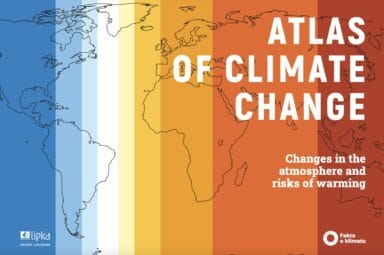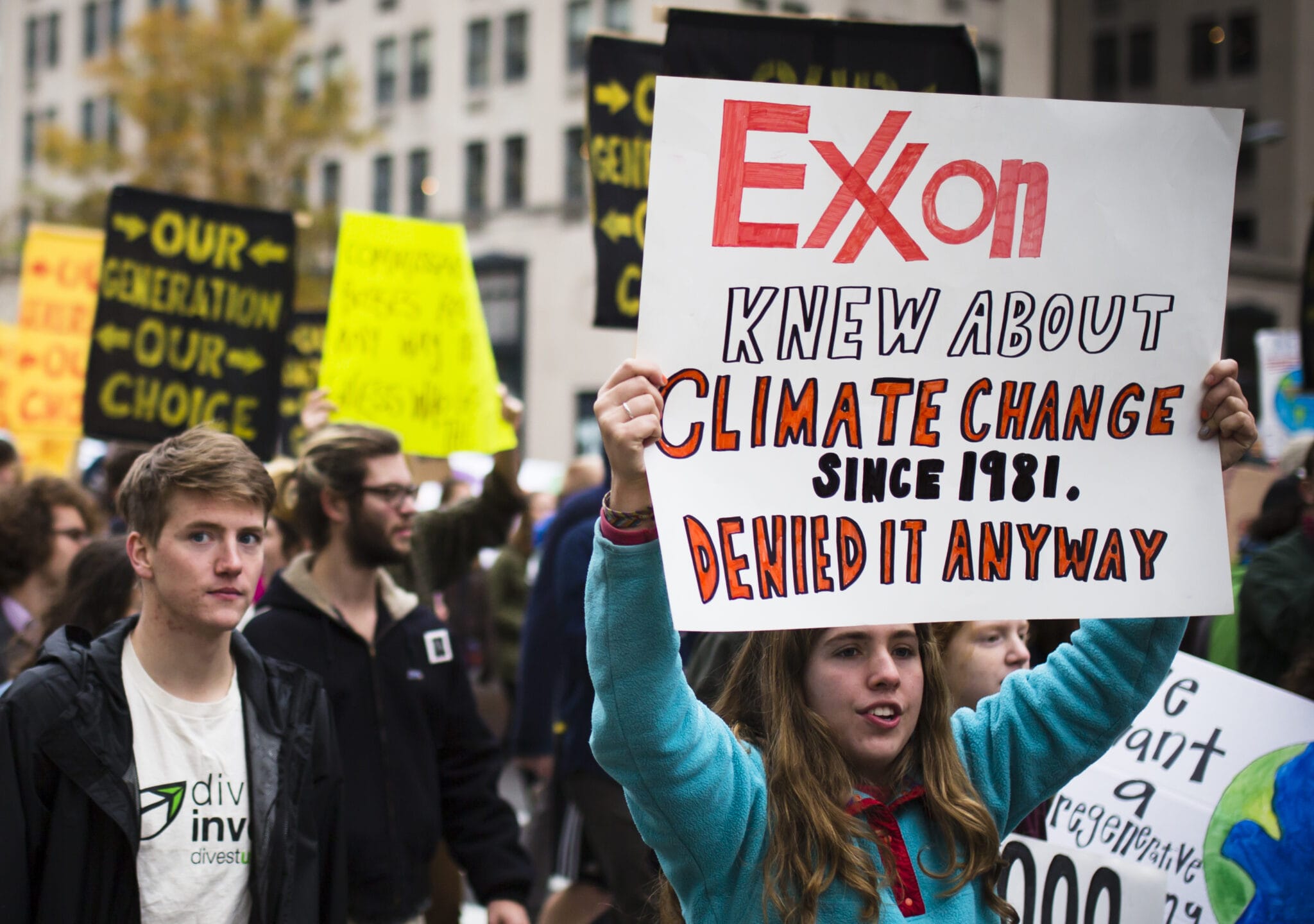“Kill the story.”
That was the order Alan Jeffers, a media relations manager at ExxonMobil, gave Reuters’ Houston bureau chief.
It was October 2016. The “Exxon Knew” scandal had erupted a year prior, when Inside Climate News, the Los Angeles Times, and Columbia University’s Graduate School of Journalism revealed that Exxon and other oil companies had known internally for decades that burning fossil fuels could catastrophically overheat the planet — even as they publicly disparaged taking action. Now, ExxonMobil’s funding of the American Legislative Exchange Council, a right-wing lobby group, was under scrutiny. A progressive watchdog organization, the Center for Media and Democracy, had complained to the Internal Revenue Service that ALEC was abusing its nonprofit status by lobbying for ExxonMobil’s policies.
“Do you have a comment on this please?” read an email from the Reuters bureau chief.
Jeffers responded, on background, that he was disappointed that “Reuters is taking this crap seriously.”
“I hear you,” came the noncommittal reply from the Reuters bureau chief.
“Don’t hear me,” the ExxonMobil flak shot back. “Kill the story.”
That blunt command is found in a trove of 4,700 industry documents released April 30 by the US Senate Budget Committee at its hearing, “Denial, Disinformation, and Doublespeak: Big Oil’s Evolving Efforts to Avoid Accountability for Climate Change.”
Initial news coverage of the hearing overlooked how central Big Oil’s media operations have been to its climate disinformation efforts. But for journalists covering climate change, these documents are essential background reading: Forewarned is forearmed. Other nuggets include:
- An email from an ExxonMobil staffer about the Exxon Knew reporting, telling colleagues that, “We don’t actually dispute much of what these stories report….”
- BP executives saying, after the 2015 Paris Agreement, that they should drop their previous standard comment to journalists asserting that ambitious emissions targets are “costly, damaging and difficult to achieve [because such comments might be] perceived as opposition.”
- Industry flacks privately differentiated between “media activist[s]” — i.e, journalists who challenged the industry’s narrative — and “traditional journalists,” who were “fair and balanced,” which happened to be Fox’s slogan at the time.
Read more about the industry’s internal machinations in this recent collaboration between The Nation and Drilled, reported by Molly Taft. Access the internal industry documents at the bottom of this Senate Budget Committee press release.
From Us
Local climate action. The US Environmental Protection Agency will soon be sending $4.6 billion in grants to states, Native Nations, and local municipalities around the country to jumpstart climate action plans. Follow the grant money to find compelling local climate solutions stories. Check out this week’s edition of Climate on the Ballot for background and reporting ideas.
Localizing climate. Read key takeaways from our recent Talking Show webinar, “Telling the Climate Story Locally.” Take me there.
Noteworthy Stories
Chinese tariffs. The Biden administration announced new import tariffs on Chinese goods, including electric vehicles, solar panels, and other clean energy parts. Analysts worry the move could slow down the US’s clean energy transition. By Scott Waldman, Jean Chemnick, and Benjamin Storrow at E&E News…
Canceled coverage. As climate change fuels more extreme weather, the insurance industry is fleeing hard-hit states. Homeowners face canceled policies, higher premiums, and reduced coverage, threatening the US economy. By Christopher Flavelle and Mira Rojanasakul at The New York Times…
- The Daily talks to Times climate reporter Christopher Flavelle about reporting the home insurance story. Listen.
Drafting executive orders. The US oil industry is drafting executive orders for Donald Trump to sign should he win a second term, according to energy executives with knowledge of the work. The orders support gas exports, reduced drilling costs, and more offshore oil leases. By Ben Lefebvre at Politico…
- Trump promised to end offshore wind projects on his first day in office.
Call to action. As record-breaking global temperatures unleash severe consequences that will only worsen, the world “cannot afford to despair,” writes the Guardian editorial board. “Politicians have mostly failed to make the case for change, and some experts believe that they often lag behind voters. If you want to make a difference, they say, back leaders who prioritize the climate crisis. A year with so many major elections around the globe offers a critical opportunity.”
Price-fixing? The CEO of Pioneer Natural Resources, a major US oil producer, is accused by the US Federal Trade Commission of trying to collude with the Organization of the Petroleum Exporting Countries to raise oil prices. “Mr. [Scott] Sheffield’s communications were designed to pad Pioneer’s bottom line — as well as those of oil companies in OPEC and OPEC+ member states — at the expense of US households and businesses,” according to the FTC’s complaint. By Matt Egan at CNN…
Resources and Reports

Atlas of climate change. Fakta o klimatu (Facts on Climate), a Czech team of experts visualizing the latest verified scientific climate data, has an easy-to-understand, free booklet filled with graphics.
Reporting opinion polls. SciLine held a media briefing discussing how to report on polling as it evolves during this big election year. “The barriers to entry in the profession have really disappeared,” said Pew Research Center’s Courtney Kennedy. It’s up to journalists to ask, “who did the poll and… do they really have credibility as a pollster.” Watch it.
Asia’s extreme heat. Extreme temperatures impacting millions of people across Asia beginning in April and continuing into May were made hotter and more likely by human-caused climate change, according to a rapid analysis by World Weather Attribution.
Record-breaking. Last month was the hottest April on record and the 11th consecutive month of record-breaking global heat, according to the National Oceanic Atmospheric Administration. Summer 2023 was the hottest in 2,000 years, a Nature study found.
European health. Climate change contributed to food insecurity for nearly an additional 12 million people in Europe in 2021, according to a new report by the Lancet Countdown. The report includes 42 indicators of climate change’s negative impacts on health.
Via Social
This past weekend, more people around the world were treated to a spectacular and rare view of the Northern Lights, also known as the aurora borealis. On X, formerly Twitter, NASA explains what solar eruptions are all about.
Why do we get auroras on Earth after eruptions occur on the Sun? A thread. 🧵
⬇️⬇️⬇️
(Images:
Left: a solar flare captured by NASA’s Solar Dynamics Observatory.
Right: Aurora seen from Lummi Island, Washington, at 10:54 p.m. PT on May 10, 2024. Credit: Jeff Carter) pic.twitter.com/0seln79n0p— NASA Sun & Space (@NASASun) May 11, 2024
Industry News
Expanding the food/ag beat. Grist has acquired the nonprofit news outlet The Counter. Grist said it will “carry on a large portion of The Counter’s mission by continuing to investigate ‘the forces shaping how and what America eats’ and how those forces intersect with climate and the environment.” Grist also announced a new food and agriculture vertical, with two new hires. Read more.
Jobs, Etc.
Jobs. The Baltimore Banner is hiring a digital producer (Baltimore, Md.). Bloomberg is searching for a weather reporter (New York, N.Y.). Middle East Eye is hiring a news desk reporter (remote). NPR is hiring a senior editor, business desk (remote). ProPublica is looking for a national reporter (New York, N.Y., or remote). States Newsroom is hiring a national technology reporter (remote). Water Education Foundation is hiring a full-time writer (Sacramento, Calif.).
Pitches. MIT Technology Review is seeking pitches by May 20 for its forthcoming print issue on the theme “Hard Problems—Food.”
Fellowship. The National Press Foundation is offering an elections reporting fellowship.
Awards. Submissions are open for the Society of Environmental Journalists’ annual awards. Enter by June 17.
